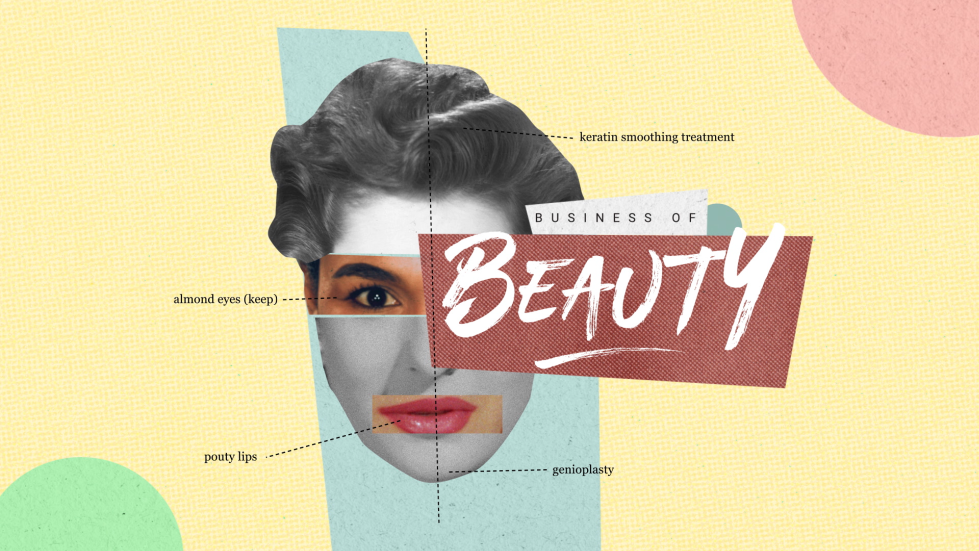Views: 0

In the ever-evolving world of beauty, the paradigm has noticeably shifted from merely looking good to actually feeling good.This transformation has been catalysed by a host of influential figures, most notably Rihanna with her groundbreaking brand Fenty Beauty. Before her arrival on the scene, the makeup market was predominantly in the hands of businesses and companies that rarely had a famous name attached to them. Makeup was often associated with exclusivity, and celebrity partnerships were limited to mere endorsements.
Fenty Beauty’s meteoric rise to success, fuelled by its unwavering commitment to diversity and inclusivity, forever altered the beauty landscape. It emphasised two key ingredients for any makeup brand’s prosperity: the influence of a famous face and an unyielding dedication to inclusivity. Since then,the allure of the beauty business has captured the hearts of major celebrities and social media influencers, all eager for a slice of the lucrative pie. The likes of Ariana Grande, Selena Gomez,Hailey Bieber, and Indian stars like Deepika Padukone and Katrina Kaif have ventured into the world of beauty, building their own brands and cultivating a close, para-social relationship with their fans-turned-customers, resulting in remarkable brand loyalty.
As this transformation unfolded, another pivotal shift emerged- the marketing playbook- moving from the traditional “buy this to look good” rhetoric to a new-age mantra: “buy this to feel good”, and “included”. This transformation is intricately intertwined with the concept of inclusivity and “acceptance”, driven by the discussions that have unfolded on social media. These conversations challenge conventional beauty standards, proclaiming that beauty is a vast and diverse spectrum that transcends traditional European ideals.
The era of implying that one must alter their appearance is nearing societal taboo, indirectly paving the way for a notable shift from makeup to skin care within the beauty industry.
However, it’s essential to examine the subtle undertones that lie beneath this shift. The industry has been promoting self-esteem and empowerment not because it’s right but because it sells. It entices consumers with the idea that they are perfect in themselves but could feel even better if they used their products. This delicate tightrope walk in marketing is, at times, a double-edged sword and quite nefarious.
The beauty market is now flooded with “clean” skin care and celebrity brands, some of which might be perceived as smart but opportunistic endeavours. The pressure isn’t just about beautifying oneself with makeup; it extends to looking phenomenal even without it. The “clean girl” and “glass skin”, even “glass hair”, trends bear similar undertones. While women should undoubtedly have the freedom to make choices for their own mental health and self-esteem, it’s imperative to also acknowledge the ongoing discussions around why women feel compelled to invest so heavily in beauty and self-care.
In a world infiltrated by social media, where platforms like Instagram and YouTube reign supreme, these digital landscapes have become powerful tools for marketing and selling beauty products.This phenomenon has led to the emergence of numerous influencer-led beauty brands, where more often it’s the influencer who is a product and a brand in themselves, contributing to the reshaping of the industry.
It’s not just products that are being marketed, but also certain practices. Instagram beauty and skin care enthusiasts have devised a slew of strategies, from eschewing the use of straws to simply stop smiling to prevent fine lines and wrinkles.The obsession with perfection has reached the point where sleeping on one’s side is perceived as contributing to an asymmetric face, prompting the recommendation to sleep only on one’s back.
This phenomenon, while not representative of everyone’s experience, is concerning because it signals that natural skin, ageing and other normal human body progressions have become almost akin to diseases that require preventative care. In response, products and content are offered as remedies. The phase Death Becomes Her then becomes a cry of resistance.
The influence of such content and the willingness of individuals to be influenced by it are disconcerting.
In the ever-expanding global beauty and skin care market, the industry’s dynamic transformation has brought forth both positive empowerment and complex challenges. As consumers, we must navigate this shifting landscape while considering the broader implications of the beauty and self-care journey. It’s vital to respect women’s choices and empower them to make decisions that foster their self-esteem and well-being. Simultaneously, we must question and challenge the societal pressures and norms that underlie these choices, striving for a world where personal beauty is defined by self-acceptance rather than external expectations. In this evolution, it is crucial to strike a balance between self-enhancement and self-acceptance, ensuring that the empowerment instilled by the beauty industry serves as a force for good rather than a source of insecurity.
Share This Post On
Tags: #society #women #social media #instagram #woman #business #marketing #influencers #beauty #inclusivity #ageing #Rihanna #skin care #fenty beauty
0 comments
Leave a comment
You need to login to leave a comment. Log-in

